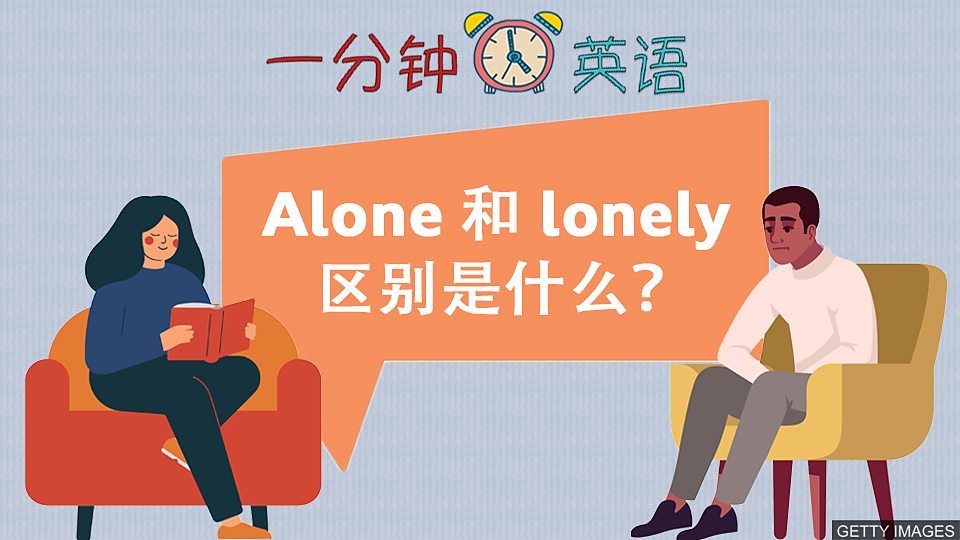内容简介
“Alone” 和 “lonely” 都与 “独处” 有关系,但它们的意思和用法并不一样!哪个词既可以作形容词也可以作副词使用?哪个词着重表达人的感受?看视频,听主持人 Charlene 教你如何辨析这对常见的易混词。
文字稿
What's the difference between alone and lonely? You're not alone – we're here to help you find out.
If you are alone, you're not with people: solo. Alone is an adjective.
For example: I was alone in the garden all afternoon. No other person was with me.
It can also be an adverb of manner: I live alone. I am the only person who lives in my house.
Lonely is an adjective. It means you are 'sad because you are not with other people'. It describes how someone feels.
He was very lonely when his family was away.
So remember alone is neutral but lonely is a negative emotion.
You can feel happy if you are alone, but if you are lonely, you are not happy.
That's it! Don't struggle with English alone – let us help.
用法总结
1. “Alone” 可作形容词用,表示 “独自的,一个人的”。
-
I was alone when I got the call.
-
He was alone and couldn't find his parents.
2. “Alone” 也可作方式副词,表示 “独自地,一个人地(做某事)”。
-
She usually works alone and doesn't like working in teams.
-
My uncle lives alone since his partner left.
3. 形容词 “lonely” 则描述一个人的感受是 “孤独的,因独自一人而伤感的”。
-
He felt so lonely and like he had no one to talk to.
-
I adopted a second dog to act as company for my first. I was worried she was feeling lonely.


 3342次下载
点击下载
3342次下载
点击下载
 2621次下载 点击下载
2621次下载 点击下载
 4734次下载 点击下载
4734次下载 点击下载
 1854次下载 点击下载
1854次下载 点击下载
 1391次下载 点击下载
1391次下载 点击下载
 1391次下载 点击下载
1391次下载 点击下载











